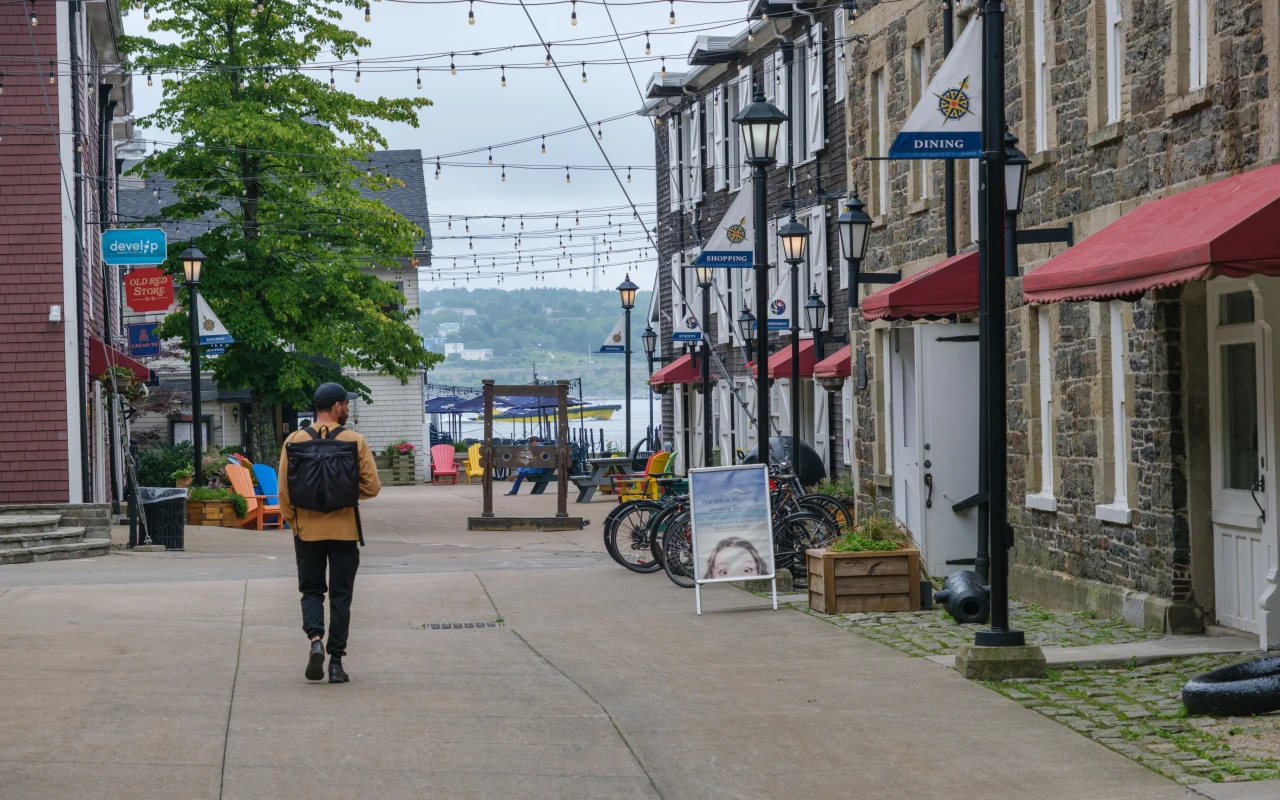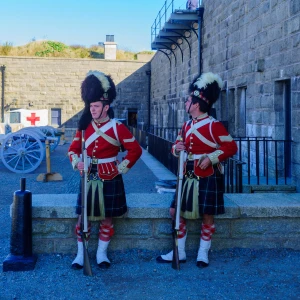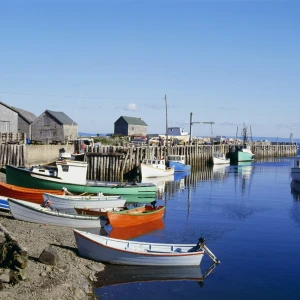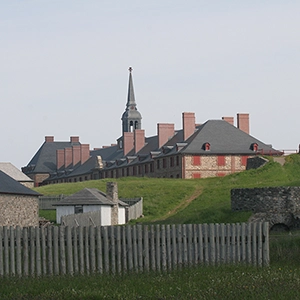
Navigating Things to do in Halifax : Answers to common questions
- Washrooms: Public washrooms are available in tourist areas, malls, and museums.
- Hours of Operation: Opening hours vary; it's best to check in advance for specific attractions or events.
- Important Information: Visit Discover Halifax or tourist information centers for brochures, maps, and personalized recommendations.
- Admission Fee: Most public attractions are free to explore, though some museums and tours have fees.
- How Long to Visit: Time spent will vary greatly depending on the activities chosen; Halifax can be enjoyed in a day or over a longer visit.
- Handicap Accessible: Attractions in Halifax offer a range of accessibility options; check individual venues for specific services.
- Pets: Pet policies vary by location; public parks are pet-friendly while indoor attractions may only allow service animals.
- Guided Tours: A variety of guided tours are available, including city walks, food tours, and historical excursions.
- Restaurant or Cafe: Dining options are plentiful, showcasing Nova Scotia's seafood and international cuisines.
- Parking: Parking availability varies by attraction; downtown areas can be busy, and using public transportation is often convenient.
- Family Friendly: Halifax provides a host of family-friendly activities, from museums and parks to harbor cruises and historical tours.
- Photography: The city is photogenic, offering historic sites, waterfront views, and cultural landmarks perfect for capturing memories.
- WIFI: Free WIFI spots can be found in public spaces and businesses throughout the city.
- Gift Shop: Numerous gift shops and specialty stores offer everything from maritime souvenirs to artisanal crafts.
Please note all times and prices subject to change. Please check the offical website for details.
More in our list of Things To Do In Nova Scotia
;Halifax Current Weather
Local Temp: 6.8℃ / 44.2℉
High: 7℃ / 44.6℉
Low: 5.9℃ / 42.6℉
Humidity: 85 %
Map for Things to do in Halifax
Did You Know?
Visitors can walk along the Halifax waterfront boardwalk, one of the world's longest downtown boardwalks, featuring shops, restaurants, and maritime attractions.
The city's rich history can be explored at sites like the Halifax Citadel National Historic Site, a star-shaped fort with reenactments and a museum.
Halifax, the capital of Nova Scotia, is a historic port city known for its maritime heritage, vibrant arts scene, and coastal beauty.
Halifax is home to the Canadian Museum of Immigration at Pier 21, Canada's equivalent to Ellis Island, telling the stories of over a million immigrants who came through the port.
The city is a cultural hub, with events like the Halifax Jazz Festival and the Atlantic Film Festival, showcasing local and international talent.
Travel Information for
Nova Scotia Visitors
Time Zone: Nova Scotia operates on Atlantic Standard Time (AST), which is 4 hours behind Greenwich Mean Time (GMT-4).
Weather: Nova Scotia experiences a maritime climate, which means milder winters and cooler summers compared to areas further inland. Winters can be cold and snowy, especially in the interior, with temperatures often ranging from -10 to 0 degrees Celsius (14 to 32 degrees Fahrenheit). Summers are generally pleasant, with temperatures ranging from 15 to 25 degrees Celsius (59 to 77 degrees Fahrenheit). Coastal areas may experience fog and cooler temperatures.
Population: Nova Scotia has a population of approximately 1 million people. It's one of the four Atlantic provinces of Canada.
Size: The province covers an area of about 55,284 square kilometers (21,345 square miles), including the mainland and over 3,800 coastal islands.
Language: English is the predominant language spoken in Nova Scotia, though there are also French-speaking communities, particularly in the Acadian regions.
Currency: The Canadian Dollar (CAD) is the currency used. Credit cards are widely accepted, but carrying some cash can be helpful, especially in smaller towns or rural areas.
Safety: Nova Scotia is generally considered a safe destination for travelers, with a low crime rate. Standard safety precautions are always recommended.
Tipping: Similar to the rest of Canada, tipping is customary in Nova Scotia. A tip of 15-20% on the total bill before tax is standard in restaurants, and tipping for other services like haircuts and taxi rides is also common.
Electricity and Plugs: Canada uses Type A and Type B plugs, and the standard voltage is 120 V with a standard frequency of 60 Hz. Travelers may need adapters or converters for their electronic devices.
Water: Tap water in Nova Scotia is safe to drink in most areas and is subject to strict quality controls.
Verified & Trusted Contact Information for Things to do in Halifax
Address:
Dresden, Halifax, NS B3K, Canada
Latitude: 44.6488
Longitude: -63.5752
More Places and Things To Do in Nova Scotia Within 500 km/300 mi of Things to do in Halifax
The Halifax Citadel National Historic Site

The Distance from Things to do in Halifax to The Halifax Citadel National Historic Site is 0.4 KM / 0.2 MI
The Halifax Public Gardens

The Distance from Things to do in Halifax to The Halifax Public Gardens is 0.8 KM / 0.5 MI
Canadian Museum of Immigration at Pier 21

The Distance from Things to do in Halifax to Canadian Museum of Immigration at Pier 21 is 1 KM / 0.6 MI
Peggy's Cove Lighthouse

The Distance from Things to do in Halifax to Peggy's Cove Lighthouse is 32.3 KM / 20.1 MI
Grand-Pré National Historic Site

The Distance from Things to do in Halifax to Grand-Pré National Historic Site is 77.3 KM / 48 MI
Wolfville Magic Winery Bus Tour

The Distance from Things to do in Halifax to Wolfville Magic Winery Bus Tour is 78.9 KM / 49 MI
Cape Forchu Lighthouse

The Distance from Things to do in Halifax to Cape Forchu Lighthouse is 226.6 KM / 140.7 MI
The Glenora Distillery

The Distance from Things to do in Halifax to The Glenora Distillery is 242.8 KM / 150.8 MI
Alexander Graham Bell National Historic Site

The Distance from Things to do in Halifax to Alexander Graham Bell National Historic Site is 273.9 KM / 170.1 MI
Cape Breton Highlands National Park

The Distance from Things to do in Halifax to Cape Breton Highlands National Park is 312.7 KM / 194.2 MI



